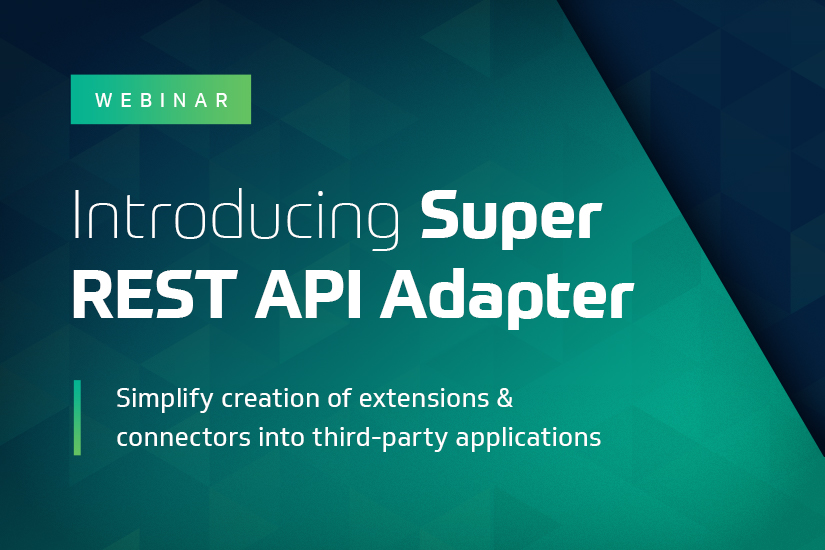Benefits And Challenges Of API Transformation: An IT Overview

Sixty percent of IT leaders will be using disruptive technologies to drive business innovation by 2025, according to Gartner. In 2019, this figure stood at 5%. That’s a lot of change in a short period of time.
New technologies are key to providing new services and creating new business value. But it also means more complexity for IT, which has to find ways to manage data across a growing list of disparate tools and systems.
Traditionally, IT teams have relied on direct connections and custom scripts to integrate tools and manage data across them. But vendors rarely provide enough connections to cover a stack, let alone the countless applications an organization relies on. Custom scripts on the other hand, while highly customizable, are time-consuming and error-prone. IT teams primarily using custom scripts to integrate will never be able to keep up with business demands.
The Role Of APIs In Modern IT
Most IT teams leverage APIs to connect third-party services or to manage data across their own internal environments, as opposed to relying solely on direct connections and scripts. 60% of IT leaders surveyed by MuleSoft reported that API integrations were “critical to their digital transformation.”
APIs abstract away complex code, making it possible to build connections between endpoints without having to write custom code. For this reason, APIs provide two key benefits to IT teams:
- Less time spent integrating new tools, accelerating the delivery of new services
- Less strain on IT resources, as API adapters make it possible for most developers to build integrations, regardless of skill level
This makes it easier for IT teams to stay atop of business and technology demands.
But APIs bring their own challenges. While considerably faster than creating custom scripts, setting up authentication, copying in variables, and testing APIs still take time and are often fairly manual, leaving room for errors.
But the top three challenges, according to Gartner, are skills, standards, and security. API development can have a steep learning curve, often complicated by lax documentation and visibility, which can leave organizations vulnerable to manual errors and unauthorized access.
Without a cohesive API strategy, APIs can add to IT complexity, becoming lost or forgotten until something breaks. Taking a piecemeal approach to APIs leads to more work as API calls are built from scratch and independently maintained.
Transform IT With Seamless Extensibility
Most IT departments use automation tools to develop and manage cross-platform processes. What if those automation tools supported APIs?
An automation platform that provides API adapters can enable IT teams to rapidly integrate new tools and technologies. Developers can build reusable API calls that can be dropped into any process, making it possible to quickly and reliably deliver new services.
The right automation platform can also help drive API-led connectivity. With easy-to-use interfaces and reusable templates, API adapters reduce barriers to entry, enabling developers of any skill level to build end-to-end processes that incorporate multiple API calls.
This in turn reduces the time and resources required to integrate new technologies, reducing costs and helping IT teams to complete more projects in less time.
Additionally, by building API jobs within a centralized automation platform, IT teams can develop, deploy, monitor, and manage API processes from a single pane-of-glass, drastically reducing IT complexity and increasing efficiency.
Infinite Extensibility, Endless Use Cases
ActiveBatch allows you to orchestrate and manage any process by providing a unified automation platform that supports multiple types of APIs, including REST, .Net assemblies, command lines, and WSDLs such as RESTful and SOAP.
ActiveBatch provides direct integrations with dozens of major vendors including Microsoft, Amazon, Oracle, and Informatica, with hundreds of prebuilt Job Steps and universal connectors. APIs developed with ActiveBatch’s Super REST API adapter can be seamlessly integrated into end-to-end processes. Those processes can then be monitored and managed from a single pane of glass with powerful real-time monitoring, reporting, and alerting tools.
APIs make it possible to connect to virtually any endpoint. But true extensibility requires efficiency and reliability, so that your team can quickly roll-out new services without bringing in new resources. With ActiveBatch, your team gets the tools and capabilities needed to expand your automation as your organization grows.
Looking For A Live Demo?
See a full demo of the Super REST API Adapter in our latest webinar, “Extend Your Workload Automation With ActiveBatch’s New Super REST API.”
Join Mehul Amin, VP of Product & Engineering, and Chris Loeschorn, Director of Engineering, as they present a live demo of the Super REST API Adapter and answer audience questions. Get a first-hand deep-dive into ActiveBatch’s API capabilities and see what your team can achieve with workload automation.








